Chris Weber
Operetta Research Center
25 June, 2019
One cannot call them “reviews,” since I don’t read music, and a performance has to be either very good or very bad in order for me to remember it. All I have going for me is my love of Offenbach and his fellow composers who, in the words of Albert Jay Nock, “had the highly civilized manner of taking serious things lightly, and light things seriously”. So I’d like to share some of my operetta memories with you, including impressions of the new Madame Favart at Opéra-Comique in Paris, 2019.
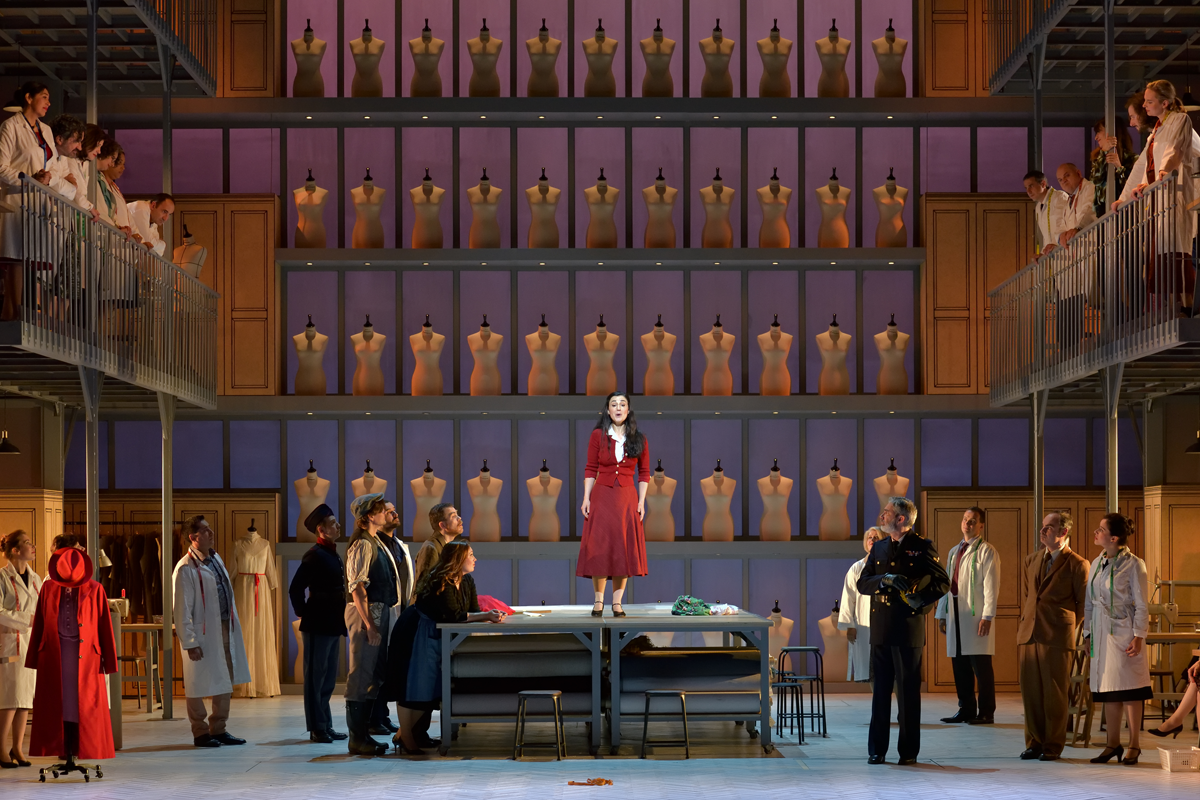
Suzanne (Anne-Catherine Gillet) with Hector de Boispréau (François Rougier), Biscotin (Lionel Peintre), Major Cotignac (Franck Leguérinel), and the chorus of the Opéra de Limoges in “Madame Favart” at Opéra-Comique, 2019. (Photo: Stéphane Brion)
Circumstances have enabled me to travel wherever I’ve wanted to since 1974, when I was still a teenager. That’s the other thing I’ve got going for me: I learned that I had a talent for investment around that time, and I’ve never had money worries since.
Some all-time favorite memories about Offenbach? The Walter Felsenstein production of Barbe-Blue (Ritter Blaubart) at the Komisher Oper in then-East Berlin. It had the most “edge” of anything I’ve ever seen. If you know the piece, part of it concerns the insanity of those in power. I learned later that the actor who played the king did so with an accent mimicking Hitler’s propaganda chief Joseph Goebbels.
So of course to the Communist powers under which it was shown, it was “OK.” But what was obvious to me was that the audience knew that it could easily have applied to the rulers at that time, 1982.
So often in my native country of America Offenbach is performed in a smutty way, as if nothing important is really being said. But America is lucky in never having lived under a totalitarian police state.
I care little about ‘prestige’ performances: maybe my second most memorable performance was done by amateurs who worked for one of the huge French bureaucratic companies: I think the water company, though it may have been the electrical company.
There is great talent in all sorts of places, and in all sorts of people who choose to work at normal jobs and sing or act as hobbies, out of love. And this was exactly the type of people who put on Orphée aux enfers about 25 years ago. The love they brought was so obvious it jumped out at you. I bet no one got paid anything; maybe even the small theatre was donated or owned by the utility. But they were good, and they put all their heart into it.
Maybe they knew that they’d go back to their jobs at the power company and never go on stage again. What am I talking about, “maybe”? Of course they did.
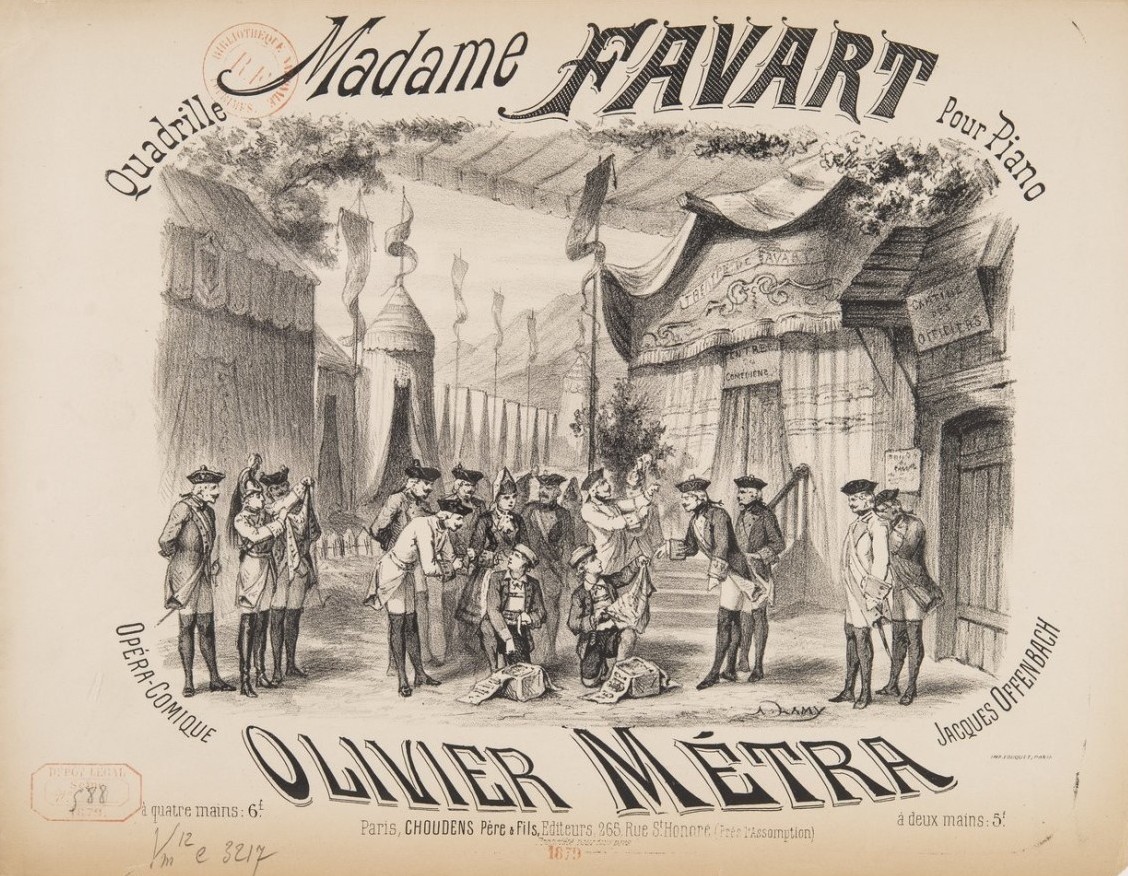
Sheet music cover for Offenbach’s “Madame Favart.”
So in this 200th birthyear of Offenbach I’ve seen a few performances and plan to see more. Last night I saw Madame Favart at the Salle Favart, otherwise known as the Opéra-Comique. The Hôtel Favart is adjacent to the theatre. And that’s the reason why the company insisted that this work be the one they put on.
I saw it once before, about 14 years ago at a small theatre in Marsailles. It was okay … just okay!
I’ve long loved the music from it. What struck me the most was the ingenious way Offenbach composed it in 1878, so of course – like all artists, being a creature of his time – the style of that period is everywhere. But since the show takes place in the early 18th century – Madame Favart and her husband Charles were real people and very famous actors – what struck me was how he seamlessly injected the spirit of the music of that period as well. That may sound easy, but in my experience it is hard to do. Most everyone is a creature of their own time and cannot easily escape it.
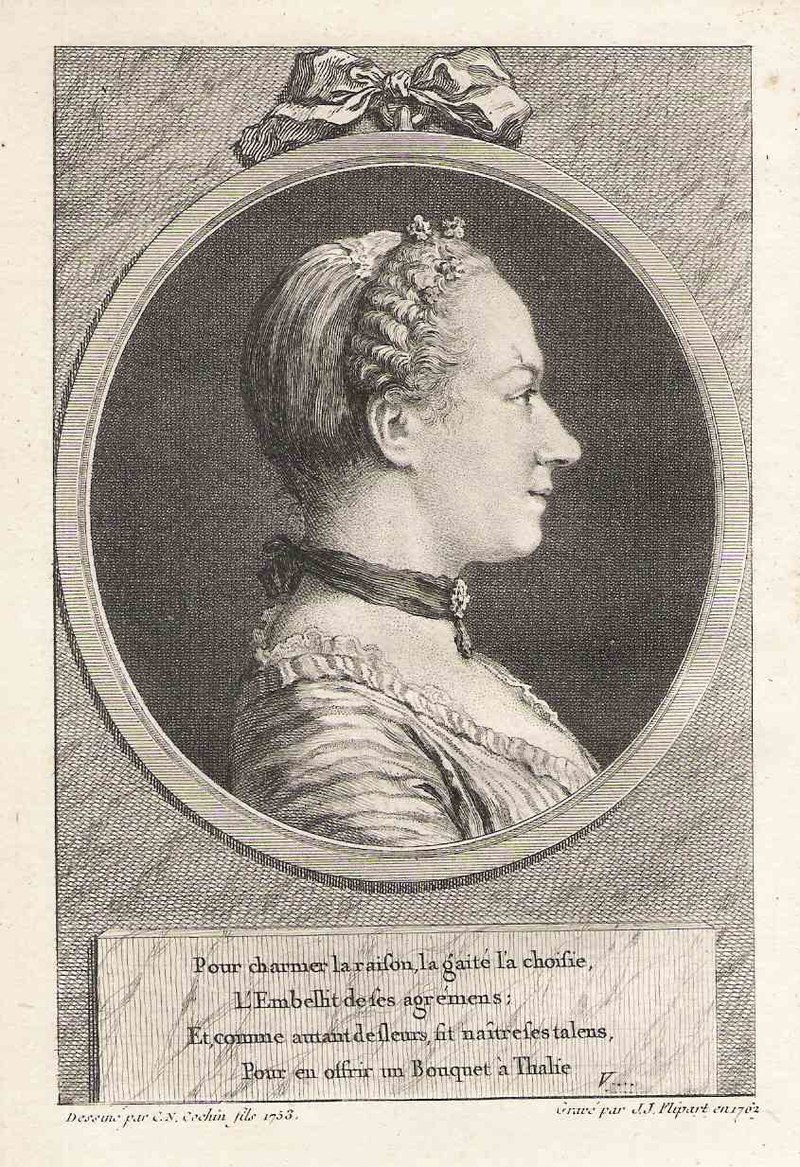
Portrait of Marie Favart (1727-1772), frontispice du Théâtre de M. Favart, Paris, Duchesne, tome V, 1763.
First, the good things about the Opéra-Comique performance: It has all the word, sung as well as spoken, projected in French and English so you can easily see them. For the very first time I knew exactly what was going on. And the woman playing the title role was pretty good. It is hard to get the right singers and actors for Offenbach.
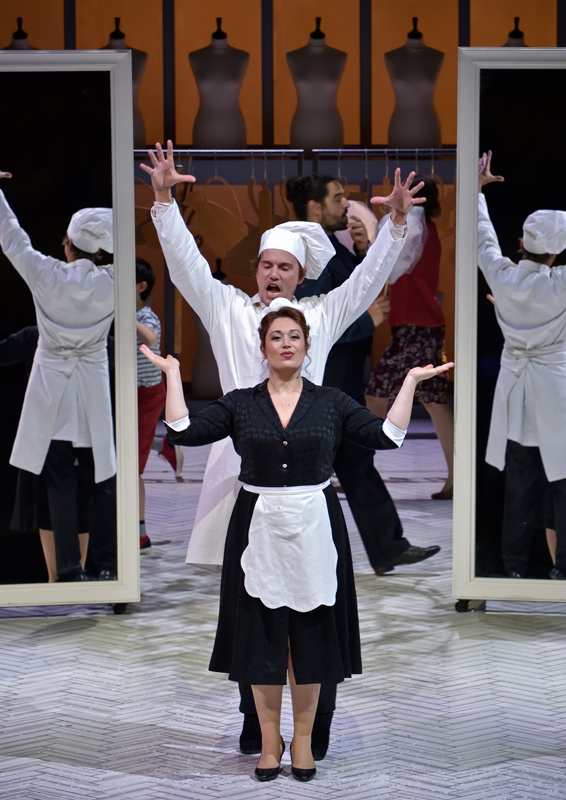
Madame Favart (Marion Lebègue) and Charles-Simon Favart (Christian Helmer), at Opéra Comique 2019. (Photo: Stéphane Brion)
The people who did his work at the time could not have sung at the Opéra Garnier or any other respectable place. They have to be actors as well as singers. Once I saw actors at the prestigious Comédie-Française ‘perform’ La Vie Parisienne. They weren’t at all bad. In fact, it was refreshing, coming from America, where opera singers who can’t act routinely do Offenbach – when they do him at all.
They couldn’t sing so well, but so what? La Vie Parisienne is a good story and good actors can put it over.

Score cover for the 5-act version of “La Vie Parisienne.”
I don’t know for sure the woman’s name who took the title role last night. I think she replaced the one who was meant to. I’m going back at least once more and will find out. Also, the man playing Charles Favart was good. (You see, this is the level of criticism you’re going to get from me, so don’t expect George Bernard Shaw or Andrew Porter.)
Madame Favart had its premiere on the last days of 1878. Offenbach died in 1880. It was the last success that he lived to witness. And it was a success.
It played about 200 showings in that first production: the first Madame Favart lived to record some of it: she was old at the time and it is not ideal, but I’m glad it exists.
The London version was mounted three months later, and was a monster success, playing 502 times. It came to the United States and was shown all over, but I doubt Offenbach got too much money out of it in those days of pirated showings.
As for the piece itself, to me all the great music is in Act One. The rest of it has very weak music, and needs great acting to put it across. Otherwise even the most enthusiastic are liable to nod off. And this is what the current production lacked.
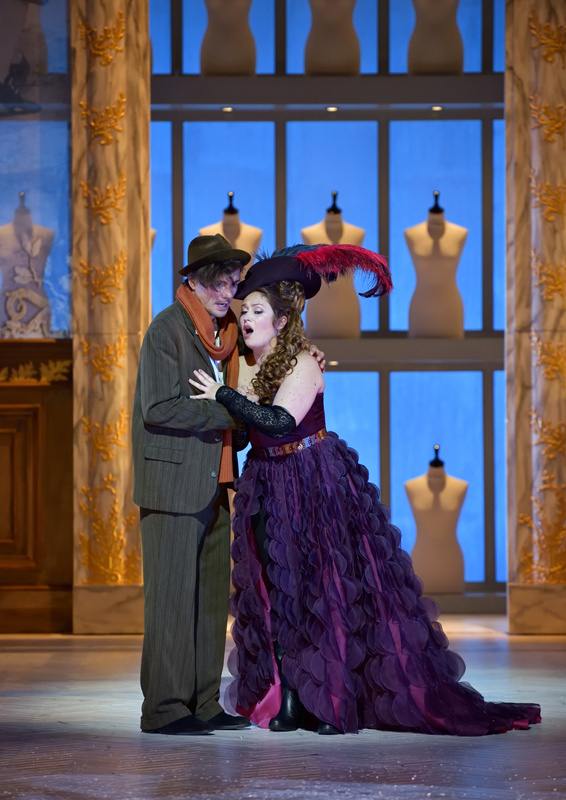
Madame Favart (Marion Lebègue) and Charles-Simon Favart (Christian Helmer) in the new production at Opéra-Comique, Paris 2019. (Photo: Stéphane Brion)
As for the production itself, it is “modern”. That means that it is cut off from any sense of place and time. I couldn’t tell you where it was set, or why it was set there. I don’t have problems with great directors playing around with things like Rigoletto that you can see all the time. But really, how often are you ever going to see Madame Favart?
Would it kill the director to be faithful to the place and time and people of the early 18th century, where it is set?
Anyway, I am off to Lyon, to see Barbe-Blue, so more later.
PS: I think I just saw perfection in Lyon! Thank God there were lots of cameras there. I hope like hell that a DVD will come out. There’ll never be another Felsenstein, but this was magnificent.

I should have mentioned the great conducting and lovely orchestra.